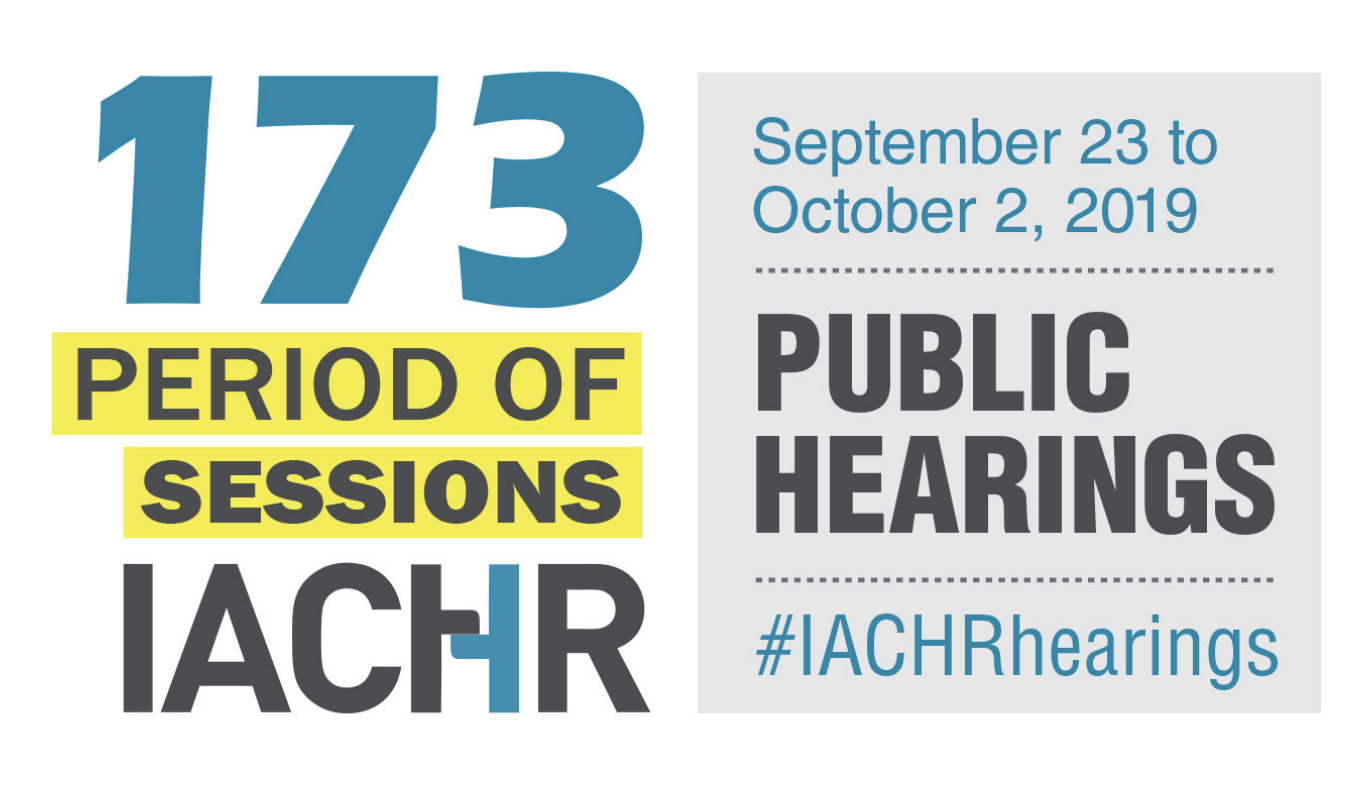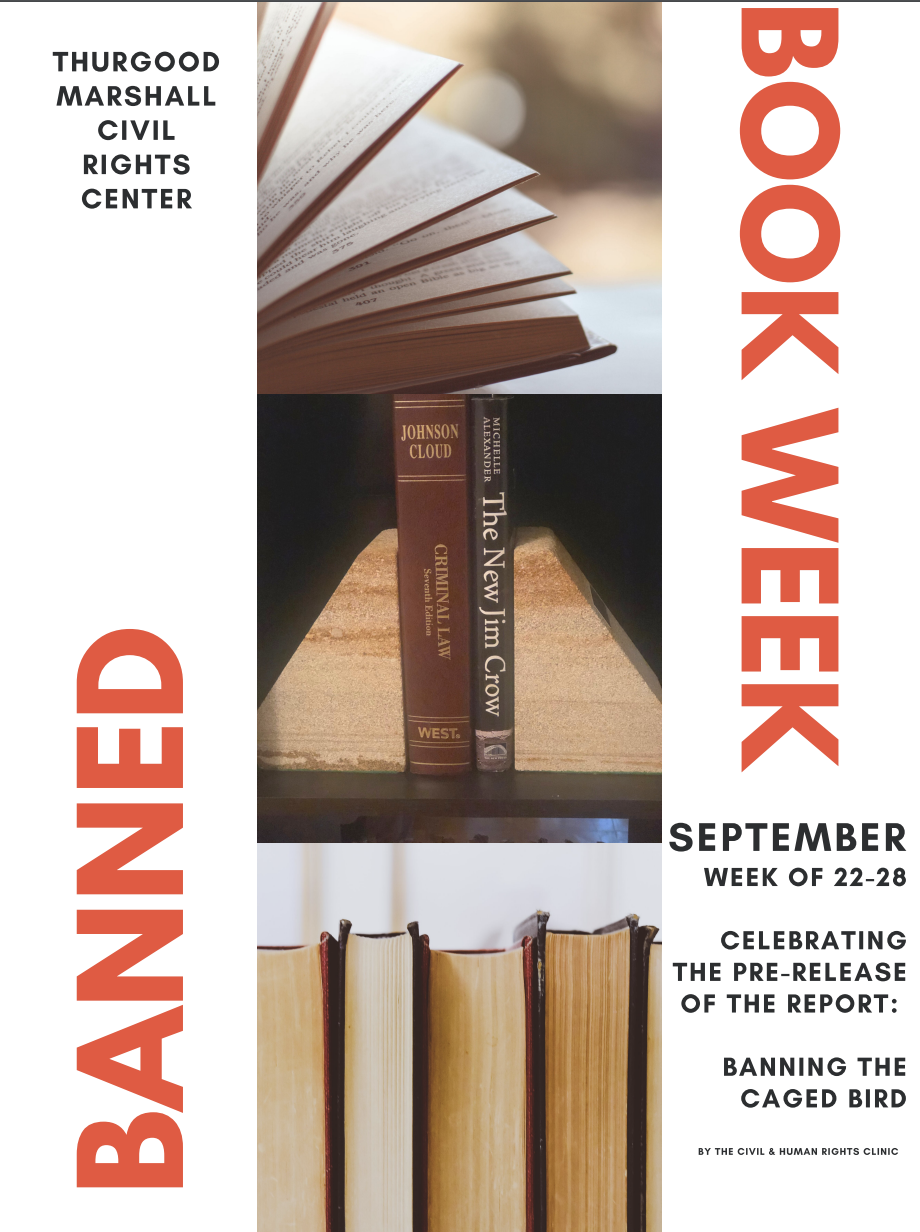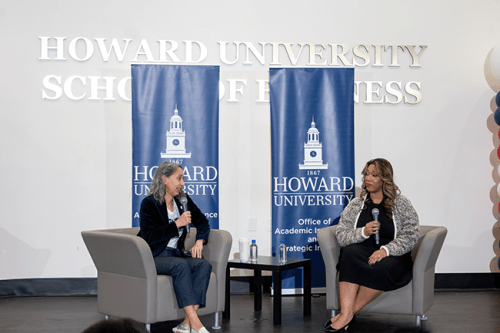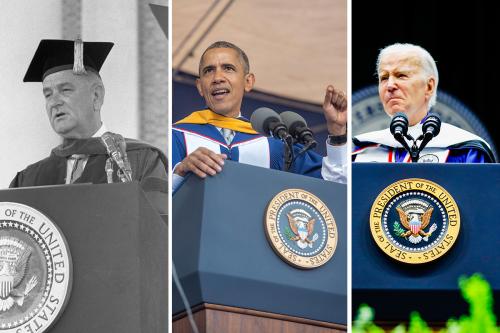 WASHINGTON — The Howard University Thurgood Marshall Civil Rights Center (TMCRC) will begin a semester-long series of events, unveiling several projects the center has been working on since it opened its doors in 2017. Two major events will be held this week, beginning on Tuesday, Sept. 24 with a hearing at the Inter-American Commission on Human Rights (IACHR), where the center and sponsoring organizations will discuss reparations for Afro-descendants as a remedy for human rights violations – one of the center’s major areas of focus and scholarship. TMCRC will also host an event on Thursday, Sept. 26 to celebrate the pre-release of its very first publication, “Banning the Caged Bird” in honor of Banned Books Week.
WASHINGTON — The Howard University Thurgood Marshall Civil Rights Center (TMCRC) will begin a semester-long series of events, unveiling several projects the center has been working on since it opened its doors in 2017. Two major events will be held this week, beginning on Tuesday, Sept. 24 with a hearing at the Inter-American Commission on Human Rights (IACHR), where the center and sponsoring organizations will discuss reparations for Afro-descendants as a remedy for human rights violations – one of the center’s major areas of focus and scholarship. TMCRC will also host an event on Thursday, Sept. 26 to celebrate the pre-release of its very first publication, “Banning the Caged Bird” in honor of Banned Books Week.
“The Thurgood Marshall Civil Rights Center’s mission is to serve as the University’s flagship institutional setting for the study and practice of civil rights, human rights, and racial justice law and advocacy,” says Justin Hansford, TMCRC executive director. “The reparations movement embodies our shared values of dignity, human rights, and equal justice under law. We are glad to have served as the petitioners for the hearing of reparations for historic and ongoing human rights violations against Afro-descendants in the United States at the Inter-American Commission for Human Rights.”
More than 15 co-sponsoring organizations requested the hearing at the 173rd Period of Sessions of the IACHR. The public hearing will be held at the Ruben Dario Room, 8th floor of the OAS GSB Building at 1889 F St. N.W from 10:15 a.m. to 11:15 a.m. on the second day of sessions. Organizations, including the NAACP, the Association of Black Psychologists, The Leadership Conference on Civil and Human Rights, the Movement for Black Lives, and more are co-sponsors of the hearing which will highlight the need for reparations for the systematic pattern of human rights violations against Afro-descendants by the U.S. government. These include: the crimes of slavery, Jim Crow laws, excessive and violent policing practices, mass incarceration and other forms of structural racial discrimination. The United States Government will also be present to answer the claims made in the hearing by the petitioners.
“In recent years, due in large part to the work of black organizers, reparations has been in the news – from the Democratic debate stage to the halls of Congress – people are talking about the need for reparations,” says Montague Simmons, who serves as a member of the Movement for Black Lives Policy Table. “However, there is a lot of confusion about what reparations are and what they are not. The Movement for Black Lives network is deeply committed to the fight for reparations because we believe without acknowledging past and continuing harms, we are destined to perpetuate them.”
The thematic hearing will be used as a critical forum to:
- Frame the issues of slavery and structural, racial discrimination as continuing crimes and human rights violations against Afro-descendants in the United States in need of reparation,
- Increase awareness of the position of the Commission and other organizations around the world on the legal obligation of the United States to ensure reparations (including restitution, compensation, rehabilitation, satisfaction and guarantees of non-repetition) for human rights violations, and
- Present trans-national collaboration and build coalitions on the need for reparations in the United States
 In addition to the hearing on reparations, the TMCRC will celebrate the pre-release of its first published report, which will debut on Sept. 26 during Banned Books Week. “Banning the Caged Bird” was written in partnership with the ACLU of Michigan and exposes policies in prisons across the United States to ban books, including critical works that seek to educate people on structural racism. The report is a result of three semesters worth of work by students in the Human and Civil Rights Clinic at Howard Law.
In addition to the hearing on reparations, the TMCRC will celebrate the pre-release of its first published report, which will debut on Sept. 26 during Banned Books Week. “Banning the Caged Bird” was written in partnership with the ACLU of Michigan and exposes policies in prisons across the United States to ban books, including critical works that seek to educate people on structural racism. The report is a result of three semesters worth of work by students in the Human and Civil Rights Clinic at Howard Law.
“The Thurgood Marshall Civil Rights Center is working to help build a world where civil rights, human rights, freedom, and equal justice under law flourishes for all people who have historically suffered oppression or subordination on the grounds of difference,” says Hansford. “I myself had my mind opened up to me as a child through exposure to inspirational books and ideas, like the Autobiography of Malcolm X. That book tells the story of the transformation that can take place through literacy, even for people who are behind bars. This is why we are very proud of this effort on behalf of the students. Education is a basic human right, and we believe that advocating for the rights of incarcerated people to have access to books is aligned with the vision of the center.”
The event and discussion will begin at 6:30 p.m. in the Pauli Murray Conference Room at Howard Law School located at 2900 Van Ness St NW. It is free and open to the public.
# # #
About Howard University Thurgood Marshall Civil Rights Center
The Thurgood Marshall Civil Rights Center (TMCRC) is the flagship setting for the study and practice of civil rights law at Howard University, the leading historically Black university in the United States. TMCRC seeks to expand civil rights, human rights, freedom, and equal justice under the law by integrating legal advocacy, grassroots organizing, and academic study.
About Howard University
Founded in 1867, Howard University is a private, research university that is comprised of 13 schools and colleges. Students pursue studies in more than 120 areas leading to undergraduate, graduate and professional degrees. The University operates with a commitment to Excellence in Truth and Service and has produced four Rhodes Scholars, 11 Truman Scholars, two Marshall Scholars, one Schwarzman Scholar, over 70 Fulbright Scholars and 22 Pickering Fellows. Howard also produces more on-campus African-American Ph.D. recipients than any other university in the United States. For more information on Howard University, visit www.howard.edu.
Media Contact: Misha Cornelius, misha.cornelius@howard.edu




